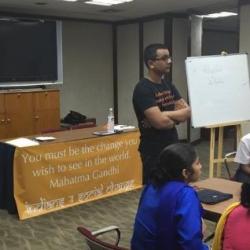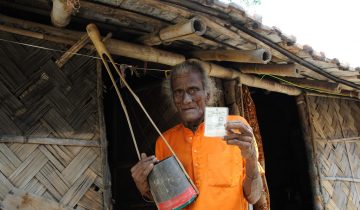Bayer Upset Over India's Patent Ruling

The Quote
The pharmaceutical industry isn’t well-liked, and Bayer’s Chief Executive Officer, demonstrated why, during a Financial Times conference. Bloomberg news originally quoted him incorrectly as saying:
Bayer Chief Executive Officer Marijn Dekkers called the compulsory license “essentially theft.” “We did not develop this medicine for Indians,” Dekkers said Dec. 3. “We developed it for western patients who can afford it.”
However, the Columbia Journalism Review fact-checked them on the issue, but the actual quote isn’t much better:
“Is this going to have a big effect on our business model? No, because we did not develop this product for the Indian market, let’s be honest. We developed this product for Western patients who can afford this product, quite honestly. It is an expensive product, being an oncology product.
Going back to Bayer’s website, you can see that the company mission statement doesn’t mean much, let alone be an actual guiding principle.
Bayer is a world-class innovation company. Our scientific achievements aim to help improve people’s lives by addressing the great challenges of our time – the growing world population, an aging society and the need to use natural resources more efficiently.
“We developed this product for Western patients who can afford this product.” seems to be in direct contradiction to “Our scientific achievements aim to help improve people’s lives…”
So what actually happened?
India’s government authorized an Indian manufacturer to produce a generic version of Bayer’s cancer drug, Nexavar. The drug is used in the treatment of liver or kidney cancer, and the original price was unaffordable for most Indians. Therefore, the government gave a domestic company a “compulsory license” to produce the drug themselves and reduce the price 97% from $5,500 to $176.
But was it legal?
Western companies were upset over the implications of what they considered “intellectual property theft,” because, of course, any decent human being would only want to help those who could afford to pay (sarcasm). The western companies are arguing that the patented drug should be priced based on research and development costs for them, not the local purchasing power.
However, the principle that India invoked to overcome the property laws was compulsory licensing, which is guaranteed from the World Trade Organization. Compulsory licensing gives developing countries the right to manufacture a drug at a lower cost if the original price is unaffordable. The caveat is that they cannot export the drug, and the patent holder still gets their share of the sales. In this case, Bayer will get 6% of the revenue from Nexavar.
Now what?
Bayer is appealing the Mumbai High Court to try to halt the production of the drug. We’ll have to see how the court rules on the issue, and it’s hard to say which way they’ll go. On one hand, the drug has the potential to save many lives and the generic won’t be taking away from sales, since no one could afford it before anyways. On the other hand, the court has to make sure it doesn’t set a precedent that is abused by Indian companies and it has to also take into account its relations with various western nations, such as the United States and Germany.
Tell us in the comments whether you think Bayer’s CEO is right.
[Image Attribute: http://www.flickr.com/photos/36495803@N05/8116279888]




